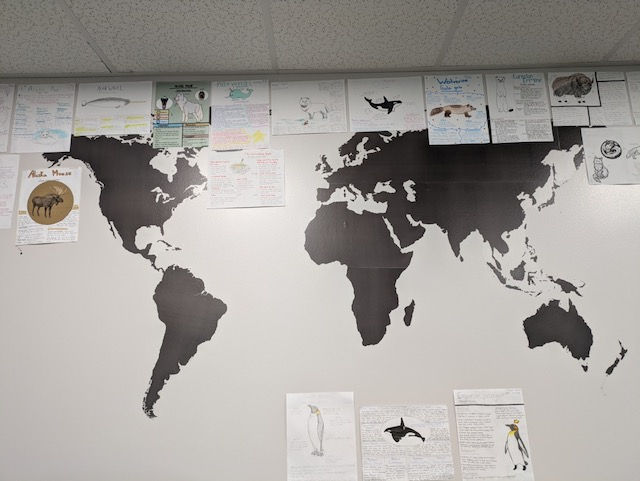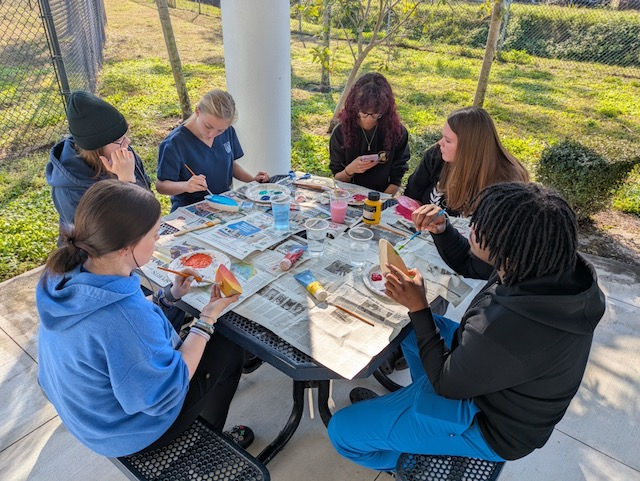Arctic Learning on Florida's Sunny Gulf Coast
- arcticfloatboat
- Mar 17
- 2 min read
Submitted by Stefanie Frump, Environmental Science Teacher
Hello from Richard O. Jacobson Technical High School, located on Florida’s sunny Gulf Coast! My name is Stefanie Frump, and I teach Marine Science 1 and 2 to mostly juniors and seniors. Students in my Marine 1 classes focus predominantly on Florida ecosystems over the course of the year, but those that return for Marine 2, have the opportunity to learn about other ecosystems that most Florida kids don’t tend to be familiar with, like the Polar regions. In mid-January, students began learning about these unique ecosystems by making comparisons of the two locations including everything from geography and types of ice to management of the areas, and the plants and animals that can be found there. They also learned about the physical, behavioral and physiological adaptations that allow polar animals to survive and thrive. Below is our classroom display featuring some of the more popular polar animals.


Students then completed virtual field trips to both locations. As a 2019 National Geographic Grosvenor Teacher Fellow, I traveled to Arctic Svalbard and was able to utilize my stories, photos, videos, and interviews with naturalists for a more personal experience.
Once background knowledge was established, we began focusing on “Polar problems,” by beginning with climate change. Students looked at the impact that warming temperatures may have on thermohaline circulation by reading recent articles and observing student-created models. They even listened to a podcast featuring winter Olympic athletes who have seen evidence of climate change firsthand. Students then broke up into groups and were randomly assigned topics like pollution (including microplastics & biomagnification), industrial fishing/overfishing, invasive species, oil & gas development, tourism, and deep-sea mining. Each student within a group was required to create a final product demonstrating how their topic is impacting the Arctic and Antarctic regions. Students produced creative children’s books, video games, comic strips, scientific posters, models, GIFs, and more!
As a Tech School, we have 7 amazing Career and Technical Education Programs (CTE). Students in our Construction program were excited to take part in the Float Your Boat Program by creating our wooden boats. Marine 2 students then enjoyed painting them as a culminating activity to the Unit on Polar Regions. While the boat “designers” will not have the chance to track their boats in class, next year’s Marine 2 students will be able to utilize the data as they begin to focus on the polar regions themselves.
Students chose to take their boats outside to paint. Florida winters are definitely not like the Polar Regions!



The Final Products:


Thank you for the opportunity to participate in the program. We look forward to tracking the boats using real-time data!



Comments